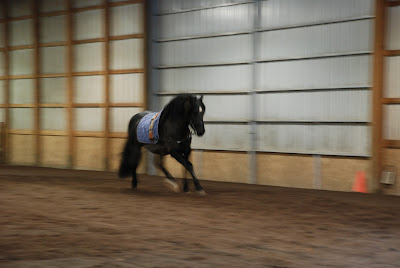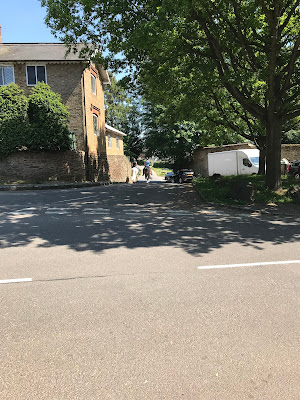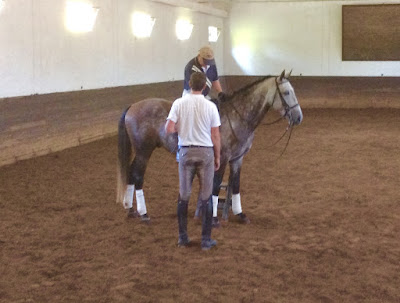
Grand Prix trainer Paul Alvin-Smith at home
Training horse and rider takes a lot of time and patience. It can also be a very rewarding experience for all parties. Trouble is, as a trainer it can sometimes be equally frustrating because just when you feel you have had a breakthrough with both horse and rider, they bob off somewhere else to work due to other factors like seasonal migration.
Regardless of whether you are a horse trainer/instructor located in the fish bowl that is West Palm Beach or Ocala, Florida, or the similarly horsey neighborhoods of Aiken, South Carolina or the Hamptons - or you work in Upstate New York or New England, from time to time you may find yourself giving pause about taking on students who migrate elsewhere for half the year.
Of course the answer is to be the trainer that also migrates to better climes during part of the year with the entourage of students hopefully in tow, but this is not always practical. So the compromise of sending the horse out of town and flying in and out to pick up a very occasional lesson or a few days for a show is the norm.
Horse and rider can regress in their training no matter how much effort has been put in by everyone to date. But at the same time, riders and horses will still be learning something, even if it is somewhere else with someone else. It is best to view this as an opportunity.
The reality is that often equestrians come to you in the first place for help to fix something they are having a problem solving that has occurred either in their own or their horse's progress. Usually rather predictably, both. The issues are often based in the horse's previous handling and training, and are mirrored in the student in front of you as a mini-me version of their previous trainer's methods.
This is inevitable. Trouble is, you solve the issue and progress the education of both horse and rider and eagerly move on, building on what you now feel is a solid foundation. Then the pair disappear elsewhere and it all goes backwards and starts again.
As a trainer you obviously cannot be everywhere and wouldn't want to be anyway, but it is nevertheless a seasonal situation that makes you wonder if your efforts are all rather pointless.
I was once advised that you should be careful who you work with equestrian training wise as you will end up riding and looking like they do in the saddle, with similar good and bad traits. As humans we all have shortcomings and no-one is perfect. For this reason it is essential as a trainer you also continue your own education in a positive direction to improve yourself, otherwise your own bad habits will become ingrained and the students down the line (and their horses) will suffer the consequences.

My husband Paul and I are both Grand Prix trainers and regularly travel to continue our education
This isn't to say that the rider and horse haven't learned a new technique or improved during their transitory time with you, just rather it will be very difficult for them to continue that progress under a different tutor especially when that tutor is one that set them up for the problem initially.
The tutor is usually is totally unaware of what has created the pause or halt in rider and horse progress. No-one is at fault, it's just that we all are learning and are all works in progress.
At the end of the day the best way I advise my fellow trainers to deal with this disappointing reality is to try and be satisfied with what has been achieved to date, and hope that the difference that you did make in the horse/rider partnership will hopefully resurface at some future point.
Otherwise training wise you feel you are just treading water when the student returns to you the next year, and seems back to where they started with you six months before. Send them on their way with good wishes and just hope they have retained some of what you have spent time imparting and training.
Not that you really have any choice in the matter anyway. It's simply a part of their equestrian journey and yours.

Paul Alvin-Smith working with a student at a clinic
Though the poor horse is the worst one off for he truly is in for a confusing time. And that is the crux of it all for me. But as a lovely chef at a Portuguese restaurant once said to me as he de-boned a freshly harvested and beautifully cooked fish at our table, "You have to learn to work with the fish." Indeed we do..
















































